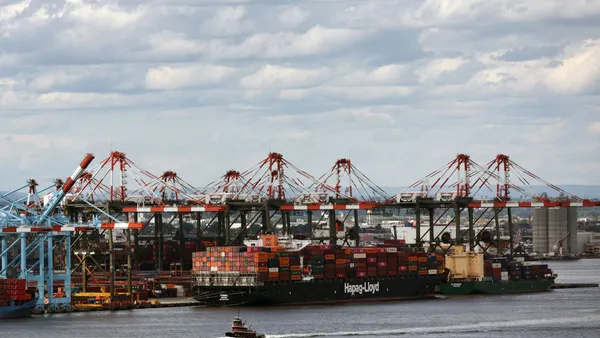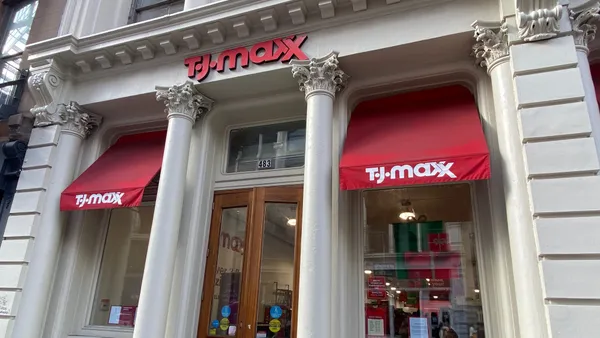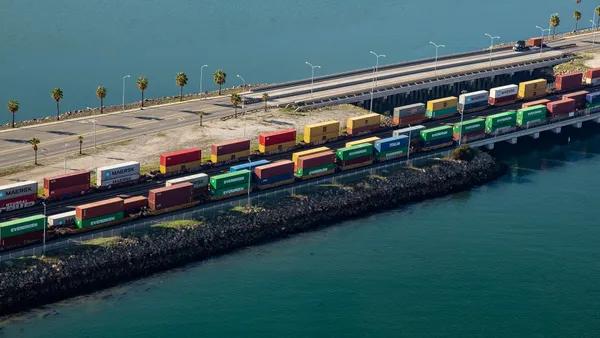Dive Brief:
- Maersk, CMA CGM and Hapag-Lloyd are the leading ocean carriers based on parameters of digital connectivity, online experience and transformation, according to a study from Freightos, an online freight marketplace, and WebCargo's research division.
- One of the biggest differences between top performers and the rest of the field is the presence of an online request for quote form. Smaller carriers are much less likely to offer customers end-to-end service on their website.
- Perhaps not surprisingly, the larger the carrier, the more digitally mature they are likely to be. However, smaller companies may be able to leverage shorter transformation times for a competitive edge, the report said.
Dive Insight:
Just a few years ago, a benchmark survey of digital maturity would have been disappointing, with outdated electronic data interchanges (EDI) and static websites to show for it, apart from some early adopters like Maersk. "In 2015, it became apparent that there was a groundswell of change," Freightos wrote in its report, launching the trend toward digital transformation.
Ocean carriers have led the charge as 50% of carriers have a head of transformation and 40% have published a digital strategy. CMA CGM and Maersk sponsor accelerator/incubator programs, another key factor in digital leadership.
In the ocean carrier rankings, Maersk scored highest for digital connectivity. Hapag-Lloyd scored highest for the online experience, closely followed by CMA CGM. CMA CGM and Maersk lead with transformation. Maersk was ranked at the top across all categories, followed by CMA CGM and Hapag-Lloyd.
Many carriers still make do with EDI systems developed in the 1970s as well as direct human communication rather than develop APIs that relay data in real time. Among 30 air cargo and ocean freight carriers Freightos surveyed, it identified only six carriers that connect with customers via APIs: CMA CGM, Maersk, MSC, Air France KLM Cargo, Delta Cargo and Lufthansa Cargo.
As ocean carriers work on improving internal connectivity and pre-booking customer connectivity, they're also developing the technology to connect with stakeholders before and during the shipment process.
"Carriers should be proud to be the backbone of world trade, powering unprecedented job creation and consumer choice, but for twenty years while retail, passenger travel and financial services were transforming through digitalization, our industry was still pushing paper airway bills and bills of lading, and manually emailing Excel-based rate sheets," said Freightos CEO Zvi Schreiber. "This survey shows that finally, the change has started. The first horses are out of the gate. And like in other industries there will be digital winners and losers."













